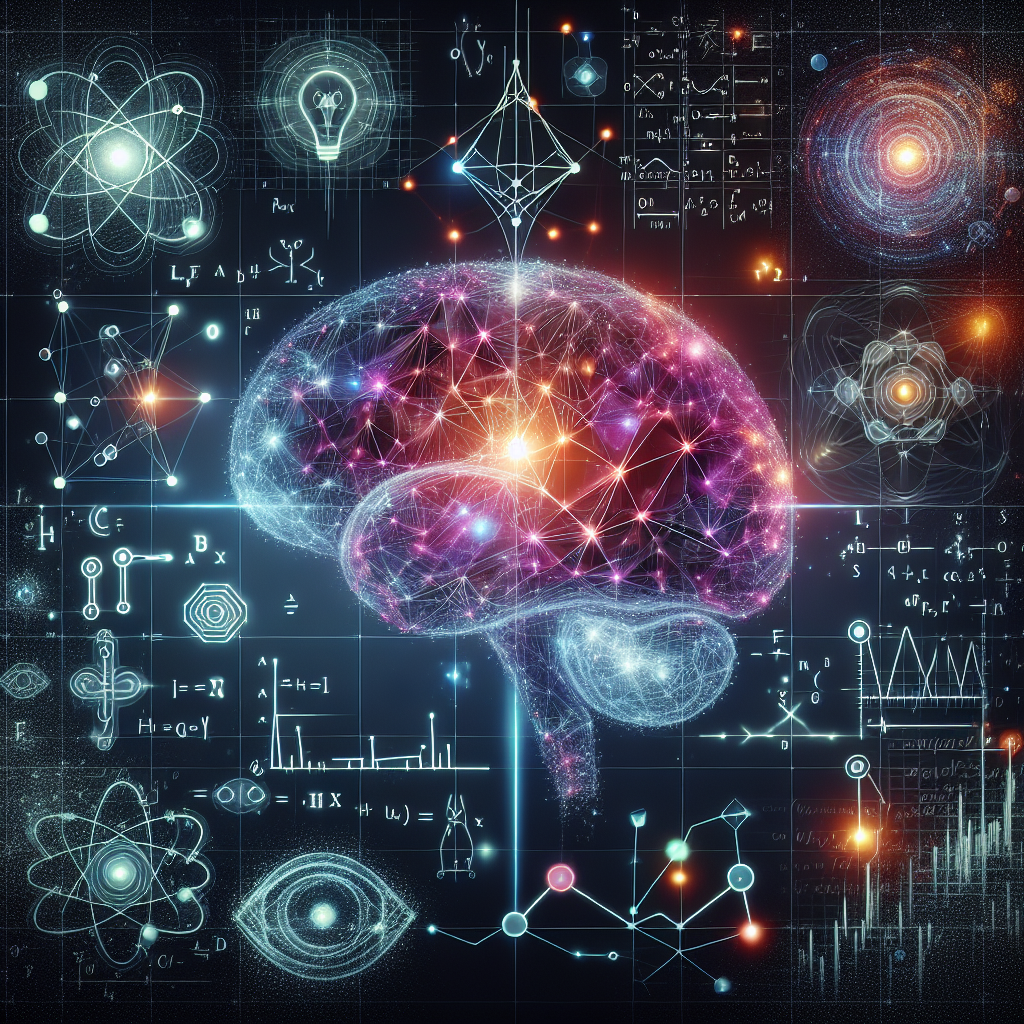AI-Supported Data Analysis Boosts Student Motivation and Reduces Stress in Physics Education

AI-Supported Data Analysis: A New Era in Physics Education
Imagine a world where learning physics is not just about memorizing formulas and slogging through tedious calculations but a stimulating journey that combines technology, creativity, and science. This vision is rapidly becoming a reality, thanks to the integration of artificial intelligence (AI) in educational settings. A groundbreaking study by Jannik Henze, André Bresges, and Sebastian Becker-Genschow illuminates how AI-supported data analysis is transforming the physics classroom, boosting student motivation, and reducing stress.
The New Frontier in Physics Education
Physics can be a challenging subject. With its complex concepts and intricate mathematical equations, students often find themselves overwhelmed. Traditional tools like Excel have long assisted in data analysis and conceptual learning. However, the advent of AI offers innovative ways to enhance understanding and engagement, as highlighted in this study. The integration of AI, particularly through AI-powered tools like custom chatbots based on ChatGPT, has shown promising results in enriching the learning experience.
The Study: AI vs. Traditional Methods
The research undertaken by Henze and his colleagues compared AI-supported methods with conventional Excel-based techniques in teaching physics. They focused on pendulum experiments, a classic physics topic, to understand how these approaches impact learning outcomes.
AI-Assisted Tools in Action
Imagine a chatbot that can help you with your homework, clarify doubts, and provide personalized feedback much like a private tutor. This is precisely what the researchers implemented with a custom chatbot based on ChatGPT. The AI tool isn’t just about accuracy; it’s about fostering a positive learning environment—one where students feel supported and motivated.
Traditional Excel-Based Techniques
Conversely, Excel remains a powerful data analysis tool in education. Many students have used its functions for calculations and graphing, experiencing quantitative learning gains. However, the study indicated that despite similar quantitative results, Excel lacks the qualitative edge in fostering a supportive and motivating environment.
Breaking Down the Research Findings
Let’s dive deeper into the study’s insights on how AI transforms physics education:
Quantitative vs. Qualitative Gains
-
Quantitative Learning Gains: Both AI-supported and Excel-based methods led to similar improvements in students’ test scores and understanding of the pendulum experiment.
-
Qualitative Advantages of AI: The real magic of AI lies in its ability to enhance qualitative aspects of learning, such as emotional engagement and student motivation. AI tools offer a personalized learning experience, making complex topics more accessible and reducing the intimidation factor often associated with physics.
Emotional Engagement and Motivation
AI tools like custom chatbots do more than just assist with calculations. They engage students emotionally, making the learning process more interactive and enjoyable. Students reported heightened motivation and less stress compared to traditional methods. This shift can be attributed to the AI’s ability to adapt to individual learning speeds and styles, offering customized support.
A More Supportive Learning Environment
One of the most significant benefits of integrating AI into physics education is the creation of a more supportive and positive learning environment. The AI not only assists with data analysis but also ensures that students don’t feel lost or overwhelmed—a common issue in traditional classroom settings.
Practical Implications for Educators
For educators looking to modernize their teaching methods, incorporating AI tools presents several advantages:
-
Enhanced Engagement: By using AI tools, teachers can make physics lessons more engaging and interactive, sparking curiosity and enthusiasm among students.
-
Personalized Learning: AI offers personalized support, identifying and addressing individual learning gaps more efficiently than traditional methods.
-
Stress Reduction: With a supportive AI companion assisting them, students are likely to experience reduced stress, fostering a more positive attitude towards challenging subjects.
-
Resource Efficiency: AI tools can streamline data analysis processes, saving time for both students and educators, allowing more room for conceptual discussions and explorative learning.
The Journey Ahead: Balancing AI and Traditional Methods
The researchers emphasize the importance of balancing AI integration with traditional teaching methods. While AI offers incredible advantages, it should complement, not replace, existing educational practices. By thoughtfully incorporating AI, educators can harness its full potential while retaining the proven benefits of traditional approaches.
Key Takeaways
As the study by Henze, Bresges, and Becker-Genschow illustrates, AI-supported data analysis in physics education is more than a technological innovation—it’s a pedagogical revolution. Here’s what you need to remember:
- AI tools are reshaping how physics is taught, making learning more engaging and less stressful.
- Custom chatbots and AI-based education tools improve motivation and emotional engagement.
- While quantitative learning gains are similar to traditional methods, AI offers qualitative benefits that enhance the learning experience.
- Educators should aim for a balanced integration of AI and traditional methods for optimal results.
As educators and students navigate this exciting new era, the potential of AI in education promises to equip learners with both the knowledge and the joy of grasping the wonders of physics—setting them on a path to success with less stress and more enthusiasm.




